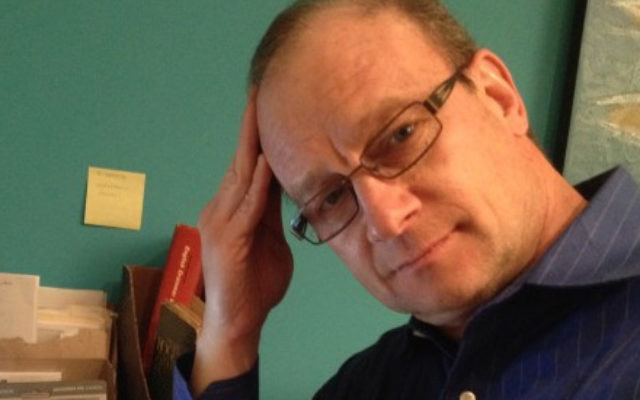The Cuban Branch on My Family Tree
By Dave Schechter / dschechter@atljewishtimes.com
Our Shehecheyanu was followed by a toast to President Barack Obama, whose decision to normalize U.S. relations with Cuba led to this “reunion” with newfound cousins.
The blessing was for the good fortune of our gathering.
The toast was neither an endorsement nor a criticism of the policy change, but merely an acknowledgment that without it we might have remained strangers.
After the president announced his intentions in December, The New York Times published a front-page article about Americans seeking compensation from Cuba for property seized in the Communist revolution.
The article included a photograph of a woman sitting astride a horse and a man standing beside her.
Here was Lois, the woman on the horse, sitting in the kitchen of a home in suburban Boston. Her husband, Roy, who was born in Havana, passed away several years ago. Lois had driven from upstate New York with her daughter, Amy, who recently testified before Congress about the farm, the shirt factory and her paternal grandmother’s house (now used by the Chinese Embassy), left behind when the family fled Cuba.
Our hosts were Bob and his wife, Susan. Bob’s father, Rael, was Roy’s older brother. Bob was raised in Cuba but left at age 12 with his mother. Rael died when Bob was 6 and was buried in a Jewish cemetery on the island.
Spread out on the counter were photographs and pages from our family tree.
My great-grandfather Solomon made his way from a village in Moldova to centers of learning across Europe and to Cambridge University before coming to New York City. His twin brother, Isaac (who became Israel), settled in Palestine in the 1880s and was among the founders of the village of Zichron Ya’akov.
Israel married twice and had 11 children. Roy’s mother, Jeannette, was one of his daughters. Roy’s father, Morris, was the son of Aaron, one of Solomon and Israel’s brothers. Roy’s parents (who were first cousins) were Bob’s grandparents.
The forebears who came to America and settled in Cuba were prominent among the island’s Jewish community. One among them, Joe, had owned a small grocery in Tampa, Fla., and befriended the exiled Jose Marti, who repaid the kindness when Cuba gained its independence in 1902 by inviting Joe and Mauricio (as Morris was known) to the island.
My 16-year-old son and I made the reunion part of our road trip to Maine. Also on hand were my brother the rabbi, his wife the cantor, and a family friend who is a scholar of our great-grandfather.
Over four hours, tales were told (including stories of Shabbat dinners in Cuba), memories were checked, and cousins learned about one another’s lives.
Lois has never returned to Cuba. Bob has been back three times.
Susan told how, on their first visit, Bob feared that he would be unable to find his father’s grave. But almost instinctively, he walked directly to it, and, for the first time, she said, he was able to fully grieve.
Lois talked about burying her wedding ring and other jewelry in her infant son’s diaper bag, figuring that if Cuban troops searched that deep, they were welcome to what they found.
My cousins are reminders of a once-thriving community of American Jews in Cuba who invested in businesses and raised families and left sadly when the revolution made life there intolerable. Whether those seeking compensation ever receive a penny remains to be negotiated, but discovering and forming friendships with this branch on our family tree certainly merited a Shehecheyanu.
Dave Schechter is a veteran journalist whose career includes writing and producing reports from Israel and elsewhere in the Middle East.




comments